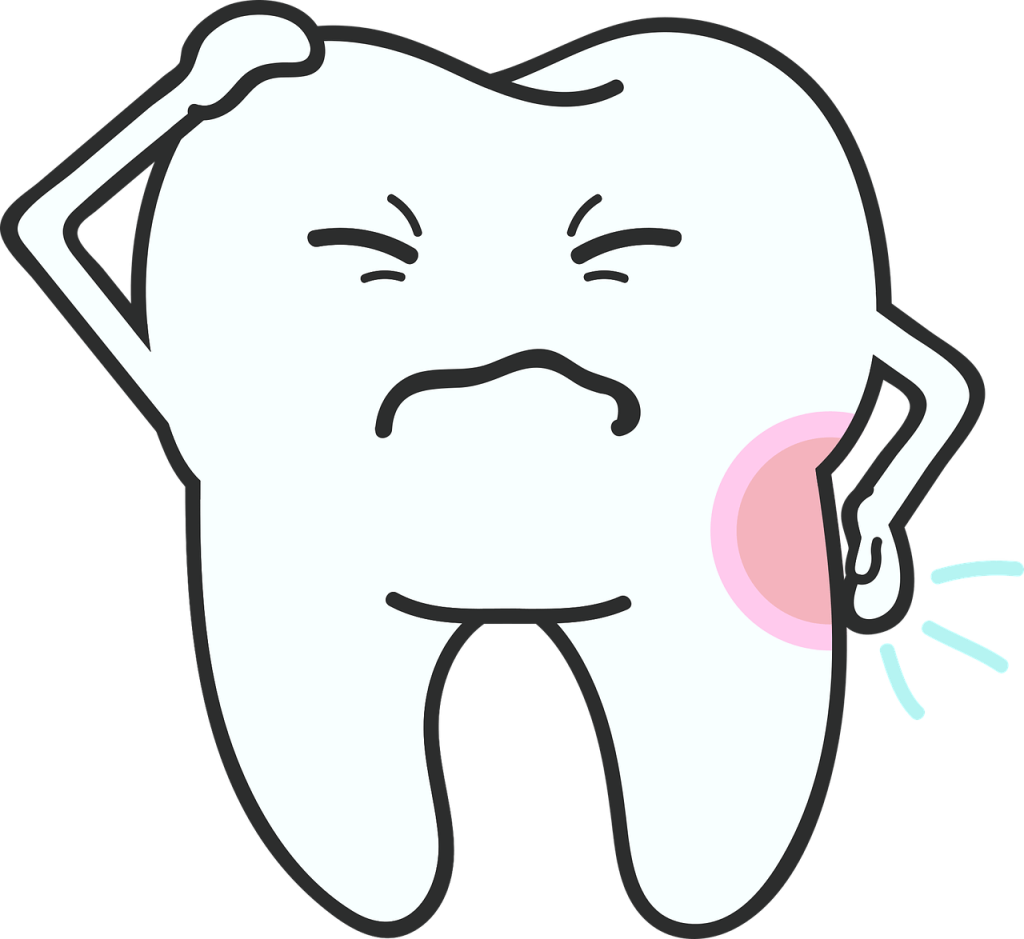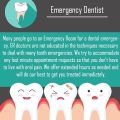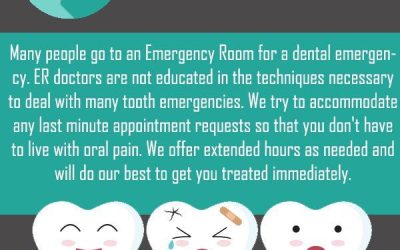If you’ve ever experienced that sharp, shooting pain in your teeth when you eat something cold or hot, you know how uncomfortable tooth sensitivity can be. But when does it cross the line from an annoyance to a dental emergency? In this article, we’ll explore whether severe tooth sensitivity warrants a trip to the dentist’s office right away or if it’s something that can be addressed with at-home remedies. So, if you’re tired of wincing every time you take a sip of ice water, keep reading to find out more.

Understanding Tooth Sensitivity
Tooth sensitivity is a common dental problem that can cause discomfort and pain when consuming hot or cold foods and beverages, or when brushing your teeth. It occurs when the protective layer of enamel on your teeth wears away, exposing the underlying dentin, which contains nerve endings. This results in heightened sensitivity to temperature changes and certain stimuli. Understanding the causes, symptoms, and appropriate responses to tooth sensitivity is crucial for maintaining good oral health.
What is tooth sensitivity?
Tooth sensitivity, also known as dentin hypersensitivity, refers to the sharp, temporary discomfort experienced in response to certain triggers like hot, cold, sweet, or acidic foods and drinks. This sensitivity arises when the dentin, a layer beneath the tooth enamel, is exposed due to enamel erosion or gum recession. The dentin contains microscopic tubules that connect to the tooth nerves, making it susceptible to external stimuli.
Causes of tooth sensitivity
Tooth sensitivity can be caused by various factors. These include:
- Brushing too hard: Vigorous brushing or using a toothbrush with hard bristles can lead to enamel erosion and gum recession, exposing the sensitive dentin.
- Gum recession: When the gum tissue shrinks or pulls back from the tooth, the roots become exposed, making them vulnerable to sensitivity.
- Enamel erosion: Acidic foods, carbonated beverages, and gastrointestinal conditions such as acid reflux can erode the protective enamel layer, exposing the dentin.
- Dental procedures: Certain dental treatments like teeth whitening, fillings, or crown placements can cause temporary tooth sensitivity.
- Cracked or fractured tooth: A cracked tooth can allow bacteria to penetrate the dentin and cause sensitivity and pain.
- Pre-existing dental conditions: Tooth decay, gum disease, or bruxism (teeth grinding) can contribute to tooth sensitivity.
Symptoms of tooth sensitivity
Individuals with tooth sensitivity may experience the following symptoms:
- Sharp, shooting pain when consuming hot, cold, sweet, or acidic foods and beverages.
- Discomfort while brushing or flossing, especially at the gumline.
- Sensitivity to cold air or touch.
- Temporary, throbbing pain that subsides quickly.
- Lingering pain after the stimuli has been removed.
Determining Emergency Situations
Tooth sensitivity can range from mild and occasional to severe and persistent. However, not all cases of tooth sensitivity require immediate dental attention. It is essential to understand when tooth sensitivity constitutes a dental emergency and when it can be managed at home.
When is tooth sensitivity considered an emergency?
Tooth sensitivity is considered an emergency when it is accompanied by severe pain, swelling, or signs of infection. If you experience intense, throbbing pain that does not subside, swelling in your face or gums, or notice pus around the affected tooth, it is crucial to seek immediate dental care.
How to assess the severity of tooth sensitivity?
Determining the severity of tooth sensitivity can help you decide if it requires emergency dental care. Ask yourself the following questions:
- Is the pain mild and occasional, or is it intense and persistent?
- Is there any visible swelling or inflammation?
- Can you manage and alleviate the pain with home remedies, or does it require immediate professional attention?
Importance of seeking emergency dental care
Seeking emergency dental care when tooth sensitivity is severe is crucial for several reasons. Severe pain and swelling may indicate an underlying infection or abscess that can rapidly progress, leading to more significant oral health issues if left untreated. Prompt professional evaluation and treatment can prevent complications, alleviate pain, and preserve the health of your teeth and gums.
Non-Emergency Causes of Tooth Sensitivity
While severe cases of tooth sensitivity require immediate attention, there are non-emergency causes that can be managed at home or with a scheduled dental visit.
Temporary sensitivity
Temporary tooth sensitivity can occur after dental procedures like teeth whitening or routine cleanings. This sensitivity usually subsides within a few days and can be managed with over-the-counter desensitizing toothpaste or other home remedies.
Dental procedures and treatments
Certain dental procedures like fillings, crown placements, or orthodontic adjustments can cause temporary tooth sensitivity. Your dentist will inform you if this sensitivity is expected and provide recommendations for managing it.
Pre-existing dental conditions
Tooth sensitivity can be a symptom of underlying dental conditions like tooth decay or gum disease. If you have pre-existing dental issues, it is essential to address them promptly to prevent worsening sensitivity or other complications.
Emergencies Related to Tooth Sensitivity
While not every case of tooth sensitivity constitutes a dental emergency, certain signs warrant immediate professional attention.
Signs of a dental emergency
If you experience any of the following signs in conjunction with tooth sensitivity, it may indicate a dental emergency:
- Severe, persistent pain that does not subside.
- Swelling in your face, gums, or lymph nodes.
- Bleeding from your gums or around the affected tooth.
- Broken or fractured tooth.
- Trauma to the tooth or mouth.
- Infection, indicated by pus or an unpleasant taste in your mouth.
Cracked or fractured tooth
A cracked or fractured tooth can expose the dentin or even the pulp, causing severe sensitivity and pain. If you suspect a cracked tooth, seek immediate dental care to prevent further damage or infection.
Severe or sudden pain
Intense, excruciating pain that persists and does not respond to home remedies may indicate an emergency. This pain could be a sign of an abscess, infection, or nerve damage, requiring prompt professional intervention.
Home Remedies for Temporary Relief
For mild or occasional tooth sensitivity, trying some home remedies can provide temporary relief until you can visit a dentist.
Using desensitizing toothpaste
Desensitizing toothpaste, available over the counter, can help reduce tooth sensitivity. These toothpastes contain ingredients like potassium nitrate or strontium chloride that block the nerve signals in the tooth, providing relief over time.
Avoiding triggering foods and drinks
Identify and avoid foods and beverages that trigger your tooth sensitivity, such as hot drinks, ice cream, acidic fruits, or sugary treats. Limiting your consumption of these items can help prevent discomfort.
Practicing good oral hygiene
Maintaining good oral hygiene practices, such as brushing twice daily with a soft-bristled toothbrush and fluoride toothpaste, flossing daily, and using a mouthwash, can help minimize tooth sensitivity. Proper oral care prevents plaque buildup and gum disease, which can exacerbate sensitivity.
When to Schedule a Non-Emergency Dental Visit
While not all instances of tooth sensitivity require immediate attention, it is essential to schedule a dental visit for certain situations.
Mild or occasional tooth sensitivity
If your tooth sensitivity is mild, occasional, and does not interfere with your daily life, it is still advisable to discuss it with your dentist during your next routine check-up. They can evaluate your teeth, identify potential causes, and provide personalized recommendations.
Discomfort from teeth whitening
Tooth sensitivity is a common side effect of teeth whitening procedures, particularly those involving bleaching agents. If you are experiencing discomfort after teeth whitening, consult your dentist for advice on managing the sensitivity.
Sensitivity after dental work
If you recently underwent dental procedures like fillings, crowns, or root canals and experience increased tooth sensitivity afterward, it is recommended to schedule a non-emergency dental visit. Your dentist can assess whether the sensitivity is normal and temporary, or if further treatment is needed.
Emergency Actions for Severe Tooth Sensitivity
If you are experiencing severe tooth sensitivity accompanied by intense pain, swelling, or other concerning symptoms, it is crucial to take immediate action.
Excruciating and persistent pain
If your tooth sensitivity is causing excruciating and persistent pain that is not relieved by over-the-counter remedies, contact your dentist right away. They can provide guidance and schedule an emergency appointment if necessary.
Swelling or infection
Swelling in your face, gums, or lymph nodes, or signs of infection like pus or an unpleasant taste in your mouth, require emergency dental care. These symptoms may indicate an abscess or infection that requires prompt attention.
Bleeding or trauma
If your tooth sensitivity is accompanied by bleeding from your gums or around the affected tooth, or if you have suffered trauma to the tooth or mouth, seek immediate dental care. Injury to the mouth or a fractured tooth can lead to serious complications if not addressed promptly.
Seeking Immediate Dental Care
When dealing with severe tooth sensitivity, it is important to contact a dentist promptly to seek appropriate care.
Contacting a dentist
If you believe you are experiencing a tooth sensitivity emergency, contact your dentist’s office immediately. Explain the urgency and provide details regarding your symptoms for them to assess the situation accurately.
Explaining symptoms and severity
When speaking with your dentist, be sure to describe your symptoms in detail. Explain the intensity of the pain, any swelling or infection, and any other concerns you may have. This information will help your dentist determine the appropriate course of action.
Emergency dental clinics
If you cannot reach your regular dentist or it is after hours, look for emergency dental clinics in your area. These clinics specialize in providing immediate care for dental emergencies, including severe tooth sensitivity, and can provide the necessary treatment to alleviate your symptoms.
Preventive Measures for Tooth Sensitivity
While it is essential to address tooth sensitivity emergencies, adopting preventive measures can help minimize the occurrence and severity of tooth sensitivity in the long run.
Maintaining regular dental check-ups
Scheduling and attending regular dental check-ups is crucial in preventing and managing tooth sensitivity. Routine visits allow your dentist to detect early signs of enamel erosion, gum recession, or other issues contributing to sensitivity, and provide appropriate treatment before they worsen.
Using a soft-bristled toothbrush
Using a toothbrush with soft bristles is gentle on your teeth and gums, reducing the risk of enamel erosion and gum recession. Brushing with light pressure and using a circular or gentle back-and-forth motion is also recommended.
Practicing proper dental care
Practicing good oral hygiene is vital in preventing tooth sensitivity. This includes brushing your teeth twice a day, flossing daily, using a fluoride toothpaste, and rinsing with a mouthwash. These habits help maintain a healthy mouth and prevent dental conditions that can lead to sensitivity.
Conclusion
Understanding tooth sensitivity, its causes, and appropriate responses to emergencies is crucial for maintaining optimal oral health. By recognizing the signs of a dental emergency and taking necessary action, you can prevent complications and alleviate pain. It is equally important to address non-emergency tooth sensitivity through home remedies or scheduled dental visits. Consulting dental professionals and practicing preventive measures are essential for long-term oral health and overall well-being. Remember, your dentist is your partner in keeping your smile healthy and comfortable, so never hesitate to seek their advice or prompt care when needed.












